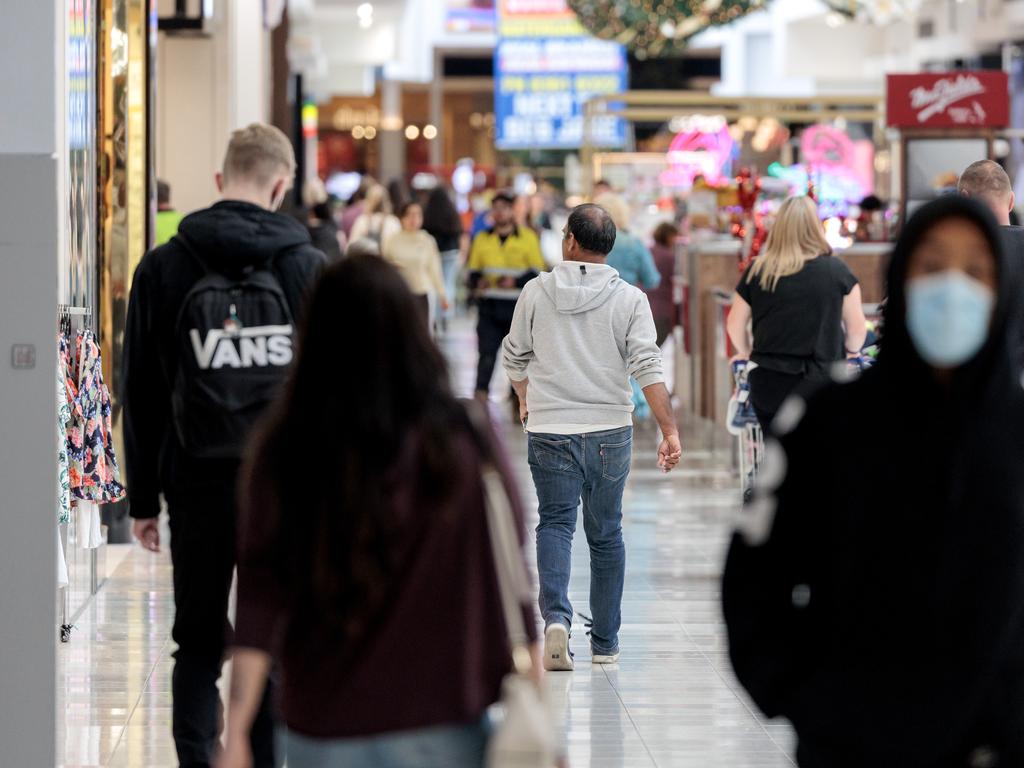Australian retail trade falls for the first time in 11 months
Cost of living pressures have finally caught up with Australian retailers after a record year for sales.
Australian consumer spending cooled during the Christmas period, bringing down the volume of retail sales for the first time in 11 months.
Retail trade fell 3.9 per cent in December, suggesting that runaway inflation and rising interest rates have started to take a toll on purchasing power.
The annual inflation rate climbed to 7.8 per cent in the same month, its highest in 30 years.
The retail trade data released by the Australian Bureau of Statistics on Tuesday reflected the worst monthly result since August 2020.
Retail turnover remained at a high level after rising 7.5 per cent from December 2021 during a record year for spending.
But economists were expecting a much smaller month-on-month decrease in December — when people would typically head to the shops during the festive season — than the 3.9 per cent recorded by the ABS.
ABS head of retail statistics Ben Dorber said the surprise drop suggested Australians were starting to rein in spending due to cost-of-living pressures.
“Retail businesses reported that many consumers had responded to these pressures by doing more Christmas shopping in November to take advantage of heavy promotional activity and discounting as part of the Black Friday sales event,” Mr Dorber said.
“While there was a strong rise in original terms for December, as is expected in the lead up to Christmas, this year’s rise in original terms was smaller than those typically seen in past December months.
“This has led to the large seasonally adjusted fall.”

ANZ analysts said strong Black Friday sales and a shift to travel spending in late 2022 put downward pressure on December retail sales, but the extent of the fall suggested households have started to cut back on discretionary spending.
They expect consumption growth to slow through 2023 as a result of higher interest rates and the recent decline in real wages due to very strong inflation.
The ABS said the retail industries which experienced the largest falls in sales in December were those which had been boosted by the Black Friday sales events in November.
Department store sales tumbled by 14.3 per cent per cent, followed by 13.1 per cent drop in clothing, footwear and personal accessory sales and a 7.8 per cent decline in household goods sales.
Food retail was the only industry to record a rise in December — of a modest 0.3 per cent — while cafes, restaurants and takeaway food sales were relatively unchanged from November.
Retail trade fell across all states and territories in December, with sales in the majority of jurisdictions down by more than 3 per cent.
The Reserve Bank of Australia will be weighing up the retail trade data to see if its eight successive interest rate hikes have had a cooling effect on the economy.
The central bank board is widely expected to raise the cash rate by another 25 basis points to 3.35 per cent when it meets next week.



